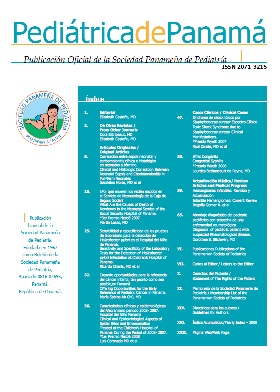Between persecution and crime, codes of ethics
[Between persecution and crime, codes of ethics]2023-04-30
Downloads
Keywords:
códigos de ética, persecusiones, crímenesKeywords:
codes of ethics, persecutions, crimesAbstract
Jurar y aceptar códigos de conducta, que no son otra cosa que códigos de ética, constituyen la entrada a la profesionalidad médica como a la dedicación a la investigación. “Los profesionales de la Medicina tienen deberes, obligaciones, privilegios y un status protegido, pero también se rigen por los más altos estándares éticos”, nos dice Phalen. El Colegio Médico de Panamá lo recuerda en su Código de Ética, cuando trae la frase de Rabelais, médico y filósofo del siglo XVI: “la ciencia sin conciencia es la ruina del alma”, para resaltar lo “indispensable de una permanente reflexión ética que fortalezca la conciencia y nos recuerde el núcleo de vocación y servicio al prójimo”.
Los humanos más tempranos ya practicaron especializaciones profesionales relacionadas con la salud, como lo revelan hallazgos arqueológicos y estudios antropológicos. Los primeros médicos en la historia, ambos nacidos en Egipto, Imhotep, varón y Merit Ptah, mujer, declararon juramentos a sus dioses, nos sigue relatando Robert F. Phalen, basados en varios atributos éticos: no mentir, no matar, no engañar.
Abstract
Swearing and accepting codes of conduct, which are nothing more than codes of ethics, constitute the gateway to medical professionalism as well as dedication to research. "Medical professionals have duties, obligations, privileges and a protected status, but they are also governed by the highest ethical standards," Phalen tells us. The Panamanian Medical Association reminds us of this in its Code of Ethics, when it brings the phrase of Rabelais, physician and philosopher of the 16th century: "science without conscience is the ruin of the soul", to emphasize the "indispensability of a permanent ethical reflection that strengthens the conscience and reminds us of the core of vocation and service to others".
The earliest humans already practiced professional specializations related to health, as revealed by archaeological findings and anthropological studies. The first physicians in history, both born in Egypt, Imhotep, male, and Merit Ptah, female, declared oaths to their gods, Robert F. Phalen continues, based on several ethical attributes: not to lie, not to kill, not to deceive.
License
Copyright (c) 2023 Infomedic Intl.Derechos autoriales y de reproducibilidad. La Revista Pediátrica de Panamá es un ente académico, sin fines de lucro, que forma parte de la Sociedad Panameña de Pediatría. Sus publicaciones son de tipo ACCESO GRATUITO y PERMANENTE de su contenido para uso individual y académico, sin restricción. Los derechos autoriales de cada artículo son retenidos por sus autores. Al Publicar en la Revista, el autor otorga Licencia permanente, exclusiva, e irrevocable a la Sociedad para la edición del manuscrito, y otorga a la empresa editorial, Infomedic International Licencia de uso de distribución, indexación y comercial exclusiva, permanente e irrevocable de su contenido y para la generación de productos y servicios derivados del mismo.






